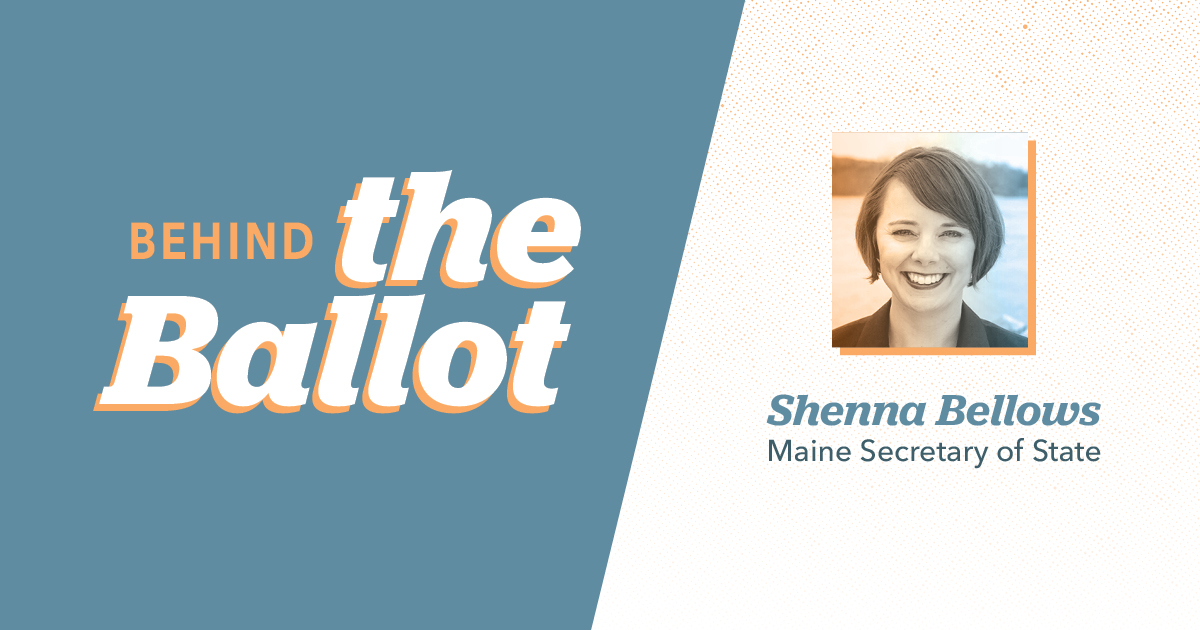
Shenna Bellows – Maine’s Secretary of State
Shenna Bellows has served as the executive director to the Holocaust and Human Rights Center as well as the American Civil Liberties Union of Maine. She was a Maine senator for four years before being selected by the Maine Legislature to serve as secretary of state. Throughout her career, and specifically in her role as secretary, Bellows has led with the philosophy of “radical transparency,” and this election season is no different.
Bellows says that she and her staff are fighting against the brewing distrust of the voting process and widespread misinformation with open communication to the people of Maine.
“Everything that we do, we share,” she said. “We have published voter information guides, we work with our local election officials to help conduct radio interviews to talk through election processes, not just once in election season, but in an ongoing basis. We have relationships with our radio hosts, with our television broadcasters and the local media so that they understand how our elections are administered.”
Partisan pushbacks are an area of concern across the nation. However, Maine’s deliberate bipartisan efforts have been extremely helpful in building back voter confidence. The state has codified law that requires an equal representation of Democrats and Republicans at the polls, information Bellows has used to ease the minds of voters and even recruit volunteers. This upcoming election season, state leaders are grappling with a drop in local election clerks, in-part due to the rise in animosity toward elections. Maine’s elections are run through municipalities, as opposed to being county-based and rely on over 500 election officials to administer state, local and federal elections.
“One of the trends that we’re seeing that’s happening across the country is the retirement and turnover among local election officials. That’s precipitated in part because of a rise in threats against election workers and people being more extreme or angry when they’re interacting with their local election officials, which has made the job more challenging,” Bellows said.
However, new bi-partisan legislation has put in place protections for poll workers in addition to bolstering the security and efficiency of elections.
“We’ve been successful in our state legislature. The legislation to protect election workers was bipartisan and we were also able to work collaboratively in the legislature to secure additional resources for training and post-election audits to help strengthen public trust and the accuracy and security of our elections. So, we’ve been really pleased to see that.”
Maine was one of the first states to introduce and adopt ranked choice voting with overwhelming support from voters. For Bellows, it was important to make this new voting process visible for all Mainers, which she says helped boost voter trust.
“Like any other aspect of elections, what’s most important is to be fully transparent about how it works,” she said. “Live streaming the ranked choice voting tabulation, for example, helps people understand how that works. Making sure that we test some of our materials like ballot design and voting for people with disabilities with representatives from the disabilities community before we launch has increased voter confidence as well.”
Beyond the ballot, Secretary Bellows is optimistic for a future of positive change. To achieve that future, she’s relying on her ideals of valiant honesty and fairness through cross-party collaboration.
“We can only achieve permanent and lasting positive change if we work together and bipartisan coalitions to get things done. Our country depends on a process. That entails checks and balances and the free and fair debate of ideas.
“The principle of no permanent friends and no permit enemies is one that I brought with me into elected office, because I think it’s really important to look past where we come from or our political affiliation to try to reach common ground around shared values.”


